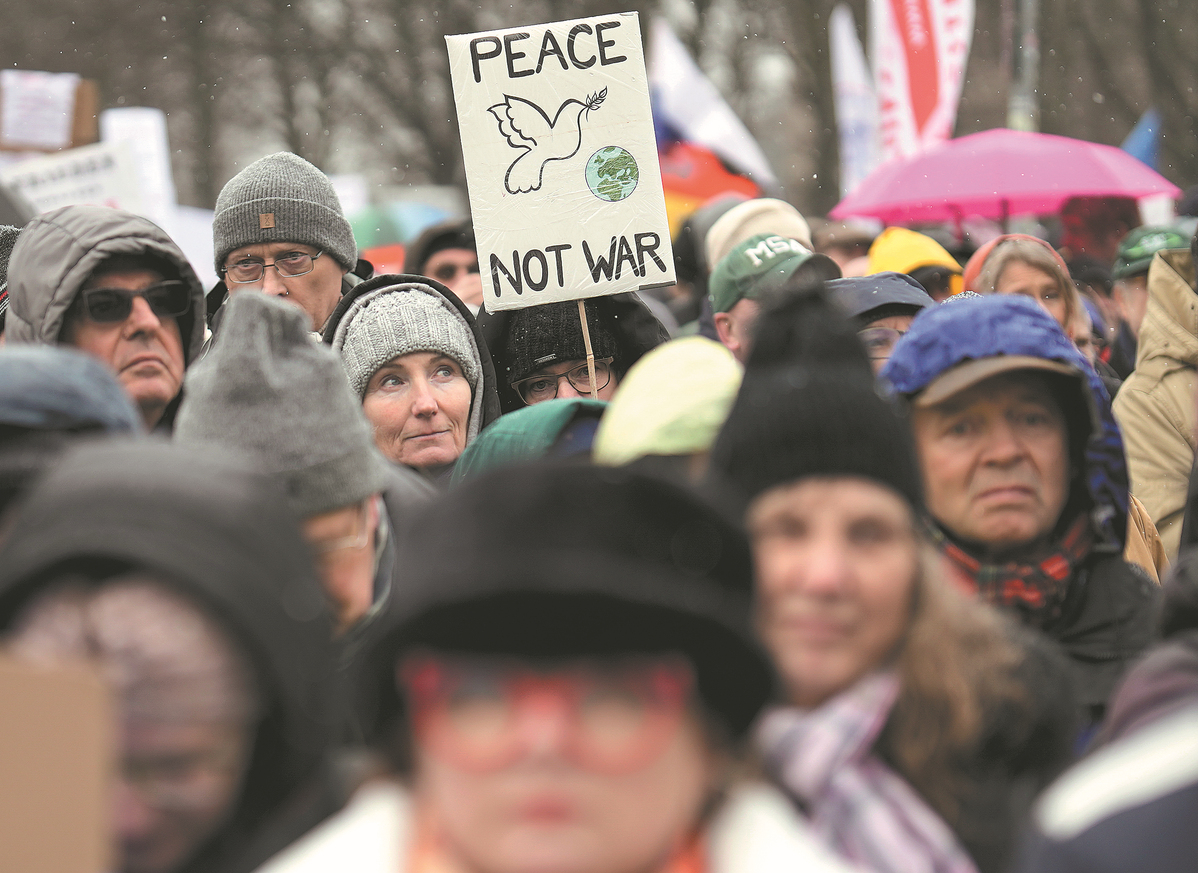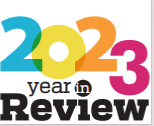Russia aims to pivot away from West


Despite sanctions, country's economy registers higher GDP growth, piling more stress on Kyiv's backers
In a widely predicted move, Russian President Vladimir Putin announced last month that he will run for a fifth term in the March 2024 presidential election.
If reelected, the 71-year-old leader, who has been in power since 2000 as president or prime minister, is expected to keep Russia on its path to pivot away from the West, experts say, while he might be ready to persist with the special military operation in Ukraine for a longer term to put mounting strain on the unity of Kyiv's Western backers.

The Kremlin's confidence is boosted by the country's better-than-expected GDP growth in the second year of Western sanctions, and experts see a promising economic development next year.
The Kremlin has been preparing for Putin's campaign all this past year, observers say, with Russian media regularly reporting on presidential administration meetings about election preparations.
During summer, Kremlin spokesman Dmitry Peskov said that Putin would easily win the 2024 election, though the latter claimed at the time that he had not yet decided if he would run.
In August, a Kremlin source told the RBC and independent Meduza news website that the goal is for Putin to win more than 80 percent of the votes, surpassing his 2018 performance.
Russian officials, including domestic policy chief Sergey Kiriyenko, have been seen at events with the heads of regional election commissions where the presidential election was discussed, The Moscow Times reported.
Oleg Ignatov, a senior analyst at the nonprofit International Crisis Group in Brussels, said the economy would be a key focus for both the Russian president and the government in the coming year.
"Revenues are growing. The sanctions have not worked. This came as a surprise even to the Kremlin itself," Ignatov said.
Huge sums of money have been invested in industry, factories are working around the clock, wages are rising, and expert forecasts say GDP growth by the end of this year will surpass 3.5 percent, higher than that of major Western countries.
"The West has strategically miscalculated," Alexander Dynkin, president of Primakov National Research Institute of World Economy and International Relations, Russian Academy of Sciences, told China Daily.
The West had hoped for an economic catastrophe in Russia after an unprecedented financial and economic war with more than 15,000 sanctions, and hoped for success of the economic blockade, said Dynkin, a key expert of the International Primakov Readings Forum, but "isolating Russia from the global market turned out to be untenable".
"New rounds of sanctions are marginal. All major and illegal restrictions have already been imposed. Therefore, I do not doubt the rationality of expectations of economic growth at a level close to 3 percent of GDP in 2024-25, which is almost twice as high as the forecast estimates for the developed countries," Dynkin said.
Feodor Voitolovsky, director of Primakov National Research Institute of World Economy and International Relations, said that since 2014, Russia has been progressively experiencing intensified sanctions from the United States and Europe, which significantly increased last year.

































